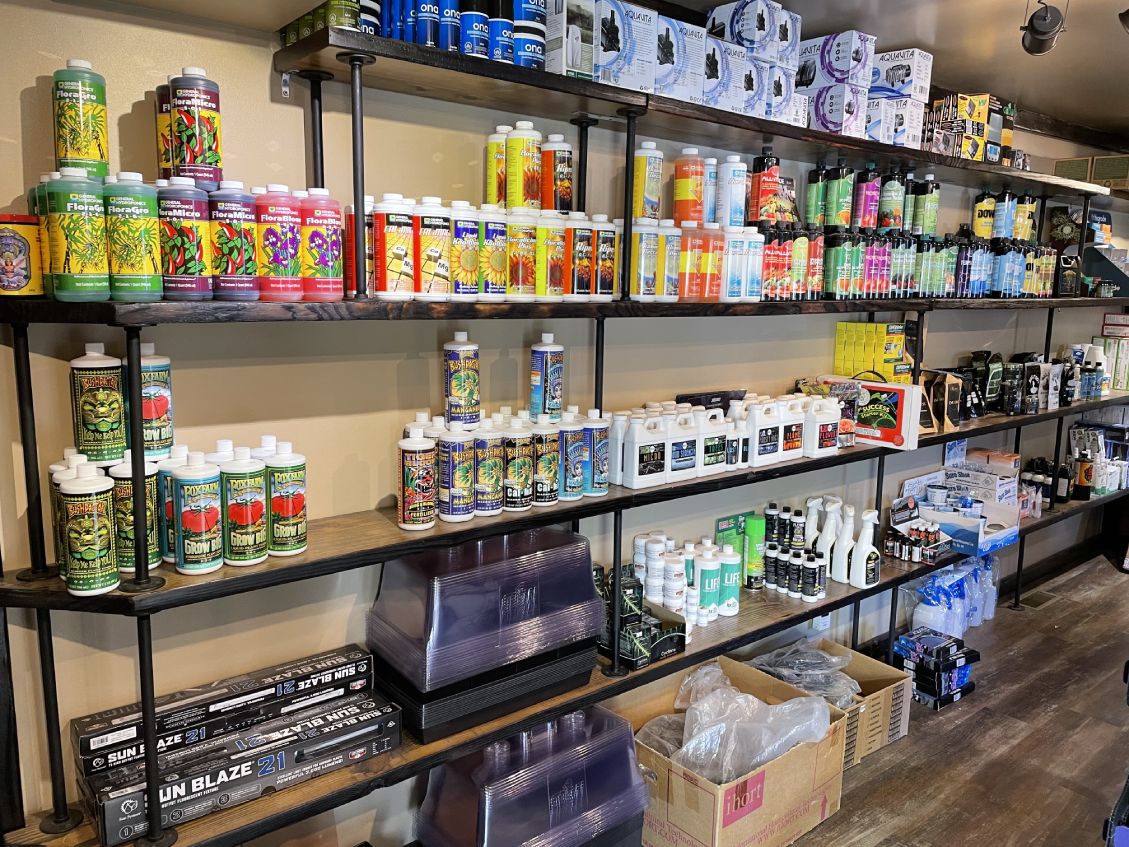Unleash Your Green Thumb: The Indoor Earthworm's Planting Process Demystified
Unleash Your Green Thumb: The Indoor Earthworm's Planting Process Demystified
Blog Article
Enhance Your Horticulture Skills With Hydroponics: Discovering Benefits
The method of cultivating plants without soil might seem unique at initially, but its advantages are worth considering. As we dive right into the world of hydroponic horticulture, we discover a variety of benefits that not just improve plant growth yet also give one-of-a-kind opportunities for individuals looking to boost their horticulture abilities.
Advantages of Hydroponic Gardening
Hydroponic gardening offers countless advantages due to its reliable use sources and exact control over plant growth problems. By giving plants with direct accessibility to nutrients dissolved in water, hydroponic systems eliminate the demand for soil, reducing water usage by as much as 90% contrasted to standard soil-based cultivation. This reliable nutrient shipment method also enables for faster plant development rates and greater yields, making hydroponic gardening an appealing alternative for making the most of minimal area and sources.
Additionally, the regulated atmosphere of hydroponic systems allows farmers to maximize factors such as moisture, ph, and temperature degrees, causing healthier plants with minimized danger of insects and conditions. This specific control over expanding conditions not only promotes faster and extra constant plant development however additionally enables for year-round cultivation no matter of external climate conditions.
Faster Plant Growth With Hydroponics
Making use of advanced nutrient shipment systems, hydroponic gardening assists in accelerated plant growth prices compared to traditional soil-based farming methods. In hydroponic systems, plants have straight access to crucial nutrients liquified in water, enabling optimal absorption without the requirement to use up power creating extensive origin systems to search for nutrients in the soil. This reliable nutrient delivery mechanism makes it possible for plants to redirect their energy in the direction of durable vegetative development and prolific fruiting or flowering.
Furthermore, the controlled environment in hydroponic configurations makes certain that plants receive the ideal problems for development constantly. Elements such as temperature level, humidity, light, and pH degrees can be meticulously kept track of and adjusted to produce the ideal growing atmosphere for each plant selection. By eliminating the variability present in soil-based gardening, hydroponic systems give plants with a secure and positive setup that optimizes their development capacity.

Water Conservation Conveniences
Offered the reliable nutrient shipment system and regulated environment of hydroponic systems, one significant benefit worth discovering is the preservation of water resources. Hydroponic horticulture utilizes up to 90% much less water contrasted to standard soil-based gardening techniques. This considerable reduction is credited to the closed-loop system where water is recirculated and reused, reducing wastefulness. In traditional soil gardening, water is lost via dissipation, drainage, and percolation past here are the findings the root zone, leading to inefficiencies. However, in hydroponics, the nutrient solution is provided straight to the plant roots, making sure optimum water uptake and decreasing water loss.
Moreover, hydroponic systems enable for accurate control over water use, with the capability to click here for more monitor and change nutrient levels based on plant requirements. This targeted method protects against overwatering, a typical issue in soil-based gardening, additional contributing to water preservation efforts. By making best use of water performance and lessening waste, hydroponic gardening offers itself as a green and lasting alternative for people wanting to reduce their water intake in horticulture practices.
Year-Round Plant Farming

By managing factors such as light, temperature, and nutrient degrees, hydroponic systems allow plants to flourish no matter exterior weather. This constant atmosphere enables continual original site plant development and harvest, supplying a reputable supply of fresh fruit and vegetables also in the dead of winter months.
Furthermore, the ability to grow plants year-round in hydroponic systems opens up possibilities for cultivators to try out a bigger range of crops, increase their expanding seasons, and boost overall productivity. This flexibility and dependability make year-round plant cultivation in hydroponics a useful device for both enthusiasts and industrial farmers wanting to maximize their horticulture efforts.
Enhancing Gardening Skills With Hydroponics
Creating efficiency in hydroponics can encourage garden enthusiasts with a much deeper understanding of plant farming strategies and enhance their overall gardening skills. Hydroponic systems give a regulated environment where gardeners can very closely monitor and change aspects such as nutrient degrees, pH equilibrium, and lighting problems to maximize plant growth. By mastering these aspects, gardeners can fine-tune their abilities and knowledge, resulting in more effective harvests and much healthier plants.
Furthermore, hydroponic horticulture challenges traditional concepts of soil-based growing, motivating garden enthusiasts to assume outside package and trying out cutting-edge expanding techniques. This testing can cultivate creative thinking and analytic skills, as gardeners find out to adjust and repair concerns unique to hydroponic systems. In addition, the performance of hydroponic configurations, such as upright yards or nutrient film strategies, can educate garden enthusiasts exactly how to make best use of room and resources efficiently.
Conclusion
Finally, hydroponic horticulture supplies many benefits such as faster plant development, water preservation, and year-round farming. By checking out the advantages of hydroponics, individuals can boost their horticulture abilities and achieve successful plant development. Think about integrating hydroponic techniques right into your horticulture methods to optimize effectiveness and productivity in your yard.
As we dive right into the globe of hydroponic horticulture, we uncover a plethora of benefits that not just improve plant development yet additionally offer one-of-a-kind possibilities for individuals looking to boost their horticulture skills.Making use of innovative nutrient delivery systems, hydroponic horticulture facilitates increased plant development rates contrasted to typical soil-based farming approaches. By getting rid of the variability existing in soil-based gardening, hydroponic systems provide plants with a favorable and stable setting that maximizes their development potential.
Enhancing the sustainability and efficiency of gardening techniques, year-round plant growing in hydroponic systems offers a consistent and trusted technique for growing a selection of crops regardless of seasonal constraints. The Indoor Earthworm.In verdict, hydroponic gardening provides countless benefits such as faster plant growth, water preservation, and year-round cultivation
Report this page